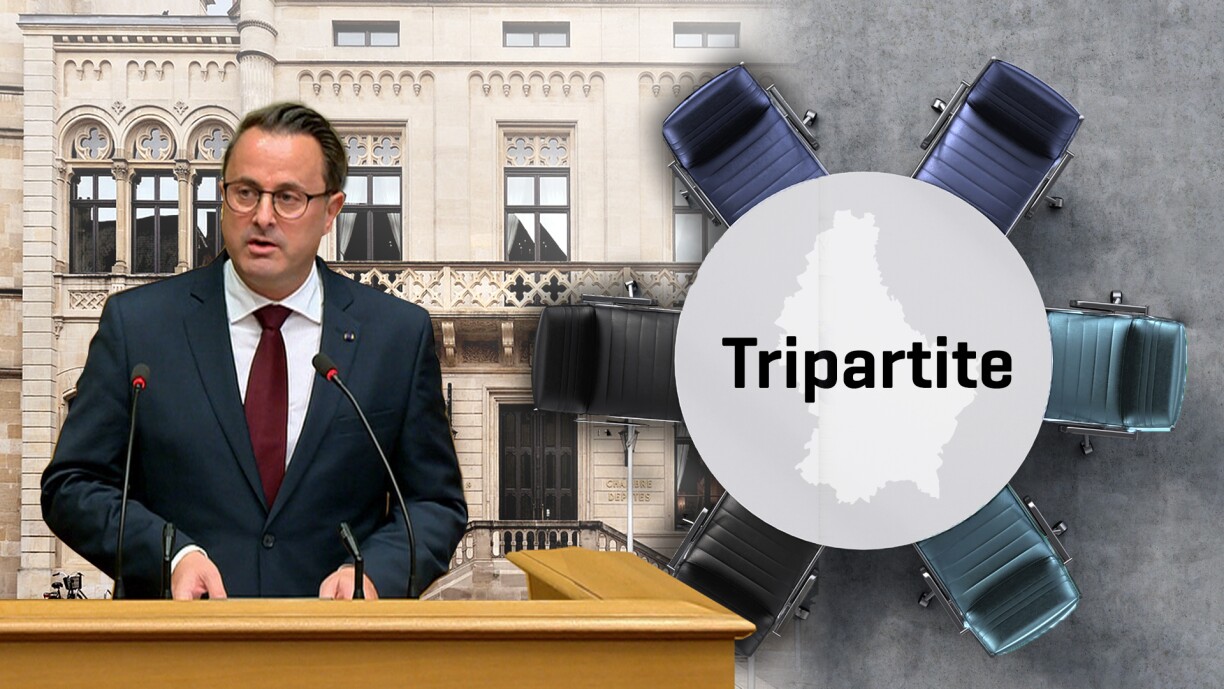
While the social partners managed to obtain significant financial aid after lengthy negotiations, the final deal was deemed insufficient by the Independent Luxembourg Trade Union Confederation (OGBL), which ultimately refused to sign it.
RTL Today - Tripartite reaction: ‘Solidarity comes at a price’, says Bettel“We would have been ready to support measures in favour of companies, but not an agreement from which only companies would benefit”, Luxembourg’s biggest trade union stated.
One of the measures that was at the centre of particularly heated negotiations is the energy tax credit. The tax credit is intended to compensate for the loss of purchasing power caused by the increase in the CO2 tax and the postponement of the wage indexation from August 2022 to April 2023.
For salaries and pensions up to €44,000 per year, the tax credit will amount to €84 per month. For salaries and pensions between €44,000 and €68,000 per year, it will be at least €76, gradually reducing to zero for salaries and pensions above €100,000 per year.
People receiving the social inclusion income (REVIS) will also receive a tax credit of €84 per month.
Minister of Finance Yuriko Backes clarified that each individual employee will be entitled to the tax credit, not just each household. Self-employed workers will also receive it. The measure will be in force during the period in which there is no indexation, i.e. until March 2023 inclusive.
The OGBL did not sign the agreement, partly because the trade union thinks that the compensation measures do not go far enough. Meanwhile, Backes said that the tax credit would clearly represent an overcompensation. The postponement of a wage indexation is meant to relieve companies.
In the area of housing, a reform of the rent subsidy has been decided. From August onwards, more people will be eligible, and the amount of the subsidy will also increase by about 50%. Larger families could receive up to €400 per month in rent subsidies.
In addition, rents will be frozen until the end of the year. This is to prevent rent subsidies from being partially or even completely swallowed up by rent increases.
Finally, the ‘PRIME House’ aid scheme will be reformed. For example, people who are entitled to this benefit for replacing their current heating unit with a more sustainable alternative will no longer have to pay the amount in advance. In the future, the government will pay the subsidy directly to the company that installed the new heating.
In addition, the aid can be doubled depending on the income of the recipient. This aid will only come into force at the beginning of 2023, but it will be retroactive from January 2022.
The latest measure decided in favour of purchasing power is the reduction of 7.5 cents per litre of fuel up to and including July 2022 and per litre of heating oil up to the end of 2022.
This is a gain of €3.75 per tank of fuel, but it raises questions: the volatility of fuel prices is such that prices can rise much faster than this discount. Last week, for example, the price of diesel jumped by 18 cents in three consecutive price increases.